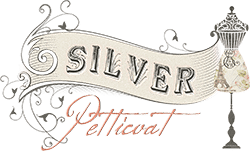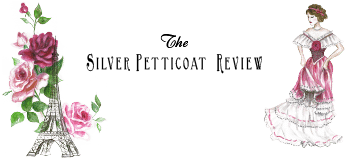
I was making up a batch of soup the other day, while reading an enchanting book, of which I happen to be writing a review (look out for The Hidden Icon review). This book talks a great deal about storytelling, something at which the main character is very skilled. It made me think of the incredible art of storytelling and how it has changed through the centuries. For instance, we don’t really have any oral storytellers any longer, or we at least have much fewer than we did a hundred years ago. Instead, we have books, movies, television, and plays that tell stories. The art of simple (or as I will show you, not so simple) oral storytelling has been lost amidst the new and exciting technology of written and film storytelling. I think this is quite sad, and needs to be reviewed and discussed.
There was nothing I looked forward to more when I was growing up than when my mother would tell me a story at bedtime. She could weave together the most amazing fantastical tales to give me wild dreams as I fell asleep. My mother was not the type to simply read me a tale that someone else had written. Oh no, she had to tackle the much more difficult task of making up a completely new tale out of thin air. I can still remember the stories she told me of a Unicorn traipsing around a magic forest, and traveling to different universes to save the weak and in danger. Now, as I have discovered, this storytelling business is no easy feat to master.
Think about it. People spend years writing novels, working on the finite details, covering up the cracks. Good storytelling involves coming up with a story on the spot, or at least the beginning of a story. They then must weave that story into something that people will stay and listen to, something that will draw them in and keep them constantly on their toes. A storyteller doesn’t have the luxury of having detailed boring parts that the reader may skip through. Think of the storyteller’s job as that of creating the movie trailer version of a tale. They have to pack in all of the “good stuff” in order to entice listeners, and leave out the tedious details. Or, they must make what would normally be tedious, interesting and engaging. And this is all based on the premise that the storyteller already knows the entire story they are going to tell.
Think of storytellers such as Scheherazade. Whether or not she knew what story she was going to tell, she had to continue telling new stories. If the storyteller only comes up with the beginning of the story, that’s even more difficult. They must be quick witted and able to think fast on their feet. To be able to continuously be thinking of new and engaging details of a story as you are telling it is an impressive skill, indeed. Not only that, but they had to include character development, a certain narrative point of view, and details such as setting, clothing, and character features. Think of creating a full-fledged novel in the time it takes you to literally think of it and breathe it’s name. I have quite an imagination, and the idea of telling stories off the cuff like that intimidates me greatly. Do you think you would be up to the task, especially if your life was on the line?
True oral storytelling is a lost art. Oral storytelling, however, is how we have gotten most of the stories we know now from movies and books. Think of all the fiction, short as well as long, we have gotten from the oral fairy tales, myths, and legends. The number of novels drawing upon that field of information is unimaginable. But oral storytelling encompasses so much more than the area of entertainment. Not only was storytelling for the purpose of entertainment, but also education, cultural preservation, and instilling moral values. Storytelling has many socially significant aspects and duties. The storyteller had a large impact on society, and still does today, even in it’s bastardized forms. So, in my humble opinion we ought to have a reemergence of oral storytellers. Come one, come all! Come together you grandparents, parents, and all who enjoy the telling of stories. Put on your gear, get your mind revved up, and go out and tell someone, anyone, a story.
What kind of story would you tell to people if you were a storyteller? Sound off below…
RELATED
If you are interested in the oral tale, don’t forget to check out our column Behind the Fairy Tale.
What kind of stories do you like? If you like happy endings like we do, make sure to read Why Happily Ever After Deserves Our Respect.
Take a look at A Vindication of the Rights of Readers.
ARE YOU A ROMANCE FAN? FOLLOW THE SILVER PETTICOAT REVIEW:
 Our romance-themed entertainment site is on a mission to help you find the best period dramas, romance movies, TV shows, and books. Other topics include Jane Austen, Classic Hollywood, TV Couples, Fairy Tales, Romantic Living, Romanticism, and more. We’re damsels not in distress fighting for the all-new optimistic Romantic Revolution. Join us and subscribe. For more information, see our About, Old-Fashioned Romance 101, Modern Romanticism 101, and Romantic Living 101.
Our romance-themed entertainment site is on a mission to help you find the best period dramas, romance movies, TV shows, and books. Other topics include Jane Austen, Classic Hollywood, TV Couples, Fairy Tales, Romantic Living, Romanticism, and more. We’re damsels not in distress fighting for the all-new optimistic Romantic Revolution. Join us and subscribe. For more information, see our About, Old-Fashioned Romance 101, Modern Romanticism 101, and Romantic Living 101.
